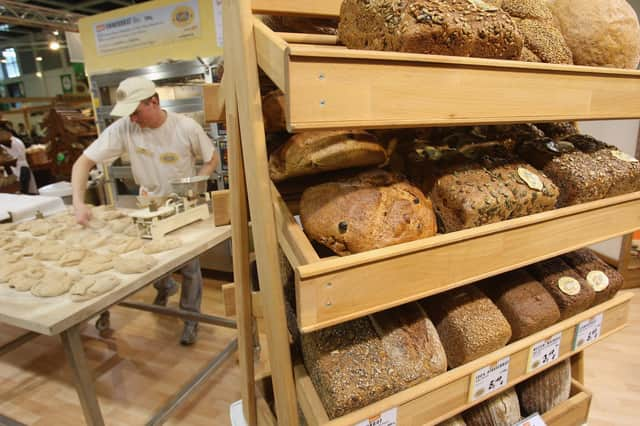Scotland the Bread is right about the need to end the historic injustice of bad food – Stephen Jardine


It didn’t promise any of the grains or wholemeal or wheatgerm you might normally expect nowadays, but it was there and the bread bin at home was empty.
The next morning I had a slice and it tasted of regret. When I next revisited days later, it showed no sings of ageing. Or the next day. This loaf was here to stay.
Advertisement
Hide AdAdvertisement
Hide AdIt was the Joan Collins of the bread world. Time couldn’t touch it. That was when I checked the ingredients. They say the best bread should have no more than three. My loaf had a dozen.
According to Scotland The Bread, that approach to a staple food in every home needs to change. This community-benefit society and registered charity aims to transform the bread we eat by growing better grain and baking better bread to improve nourishment and sustainability.
That sounds like a lofty ambition but if there is one man who can deliver it, it is founder Andrew Whitley. Andrew started on this journey back before the current crop of bearded and tattooed sourdough enthusiasts were even born.
Back in the 1970s, he founded an organic village bakery in Cumbria and since then he has written every important book on the subject including the seminal Bread Matters.
In Scotland, we are lucky to have him pushing the fight back against big bread.
“For about 200 years, white bread has been nutritionally depleted and filled with additives to make it look good and be soft but it’s not actually doing us very much good,” he told me.
“The historic injustice is that the lower your income, the poorer the quality of the food you have to eat because not only can you not afford to eat anything better but it is very rarely available in your community.”
Andrew’s solution is to organically grow a diverse range of great tasting grains, then work with millers and bakers to turn it into bread which will be available to everyone.
Advertisement
Hide AdAdvertisement
Hide Ad“It’s a big project this but it starts one loaf at a time,” he said.
Up against the mighty power of the giant industrial bakers, it might seem like a hopeless battle but in recent years things have been changing.
For a start, consumers are much more interested in where their food comes from and concerns about allergies and additives mean ingredients are more frequently scrutinised.
Then came lockdown when lots of people turned to making their own bread to avoid the length queues at the shops. Two years on, many are still doing it themselves.
On top of all that, we’ve seen a new wave of artisan bakers up and down the land who share the aims of Scotland The Bread and believe we deserve better when it comes to such a basic and popular foodstuff.
And to those who say this sounds like middle-class foodie preoccupation, Andrew Whitley has an easy answer.
“It’s always middle-class people who say that. In a patronising way, it’s assuming people on low incomes don’t want to eat better food or aren’t bothered about it. I think everyone is very bothered about it and wants things to change.”
A message from the Editor:
Thank you for reading this article. We're more reliant on your support than ever as the shift in consumer habits brought about by coronavirus impacts our advertisers.
If you haven't already, please consider supporting our trusted, fact-checked journalism by taking out a digital subscription.
Comments
Want to join the conversation? Please or to comment on this article.
